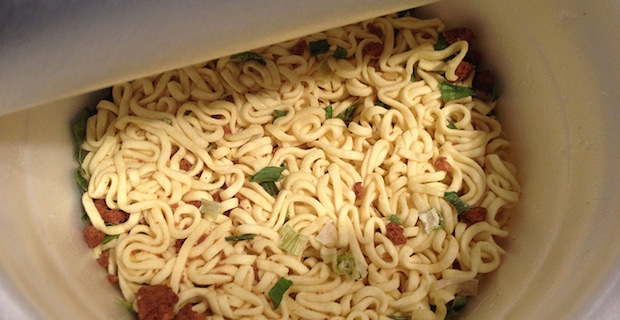
Monosodium glutamate, or MSG, is the refined sodium salt form of the amino acid glutamate or glutamic acid. MSG occurs naturally in some foods, but what happens when the refined version is added to foods in concentrated amounts? MSG has been implicated in many health issues and side effects including, but not limited to, irregular heartbeat, asthma, changes in blood pressure, migraine headaches, hyperactivity, panic attacks and more.
Why is MSG in our food in the first place?
MSG is used by food companies as a flavor enhancer to balance, blend and round out the overall perception of other tastes in food. It imparts the newly identified flavor ‘savory’ (the classic tastes are sweet, sour, bitter, and salty). Some companies argue that by using MSG, they can use less sodium chloride in their products since MSG is only 12% sodium by weight versus sodium chloride [table salt], which is 39%.
Read more about the health effects of sodium
Are the concerns about monosodium glutamate side effects valid?
The side effects of MSG have been a source of great debate. This is because each person reacts to the additive in varying degrees. Some experience extreme reactions, while others don't notice any reaction. Studies have demonstrated that there are some people that are truly sensitive to large amounts of MSG with side effects including nausea, headaches, burning sensations in the back of the neck and throat and itchiness with antihistamines providing relief. Whether you are aware of any reactions associated with an intake of MSG or not, pay attention to any physical symptoms or changes in your behavior within the hours following MSG intake.
How to avoid monosodium glutamate and any side effects
People who believe they are sensitive to MSG and its side effects would be well-advised to learn about the many nicknames that it goes by, including monopotassium glutamate, glutamic acid, texturized vegetable protein (TVP), hydrolyzed protein (any protein that is hydrolyzed), yeast extract, autolyzed yeast, the general term 'flavor' or 'seasonings', caseinate, malt and barley extract to name a few.
Read more about the worst food additives
Image: lazy fri13th
Sources
http://www.ncbi.nlm.nih.gov/pubmed/20470841
http://www.ncbi.nlm.nih.gov/pubmed/18341218
http://www.ncbi.nlm.nih.gov/pubmed/18178378
http://www.ncbi.nlm.nih.gov/pubmed/16957679




